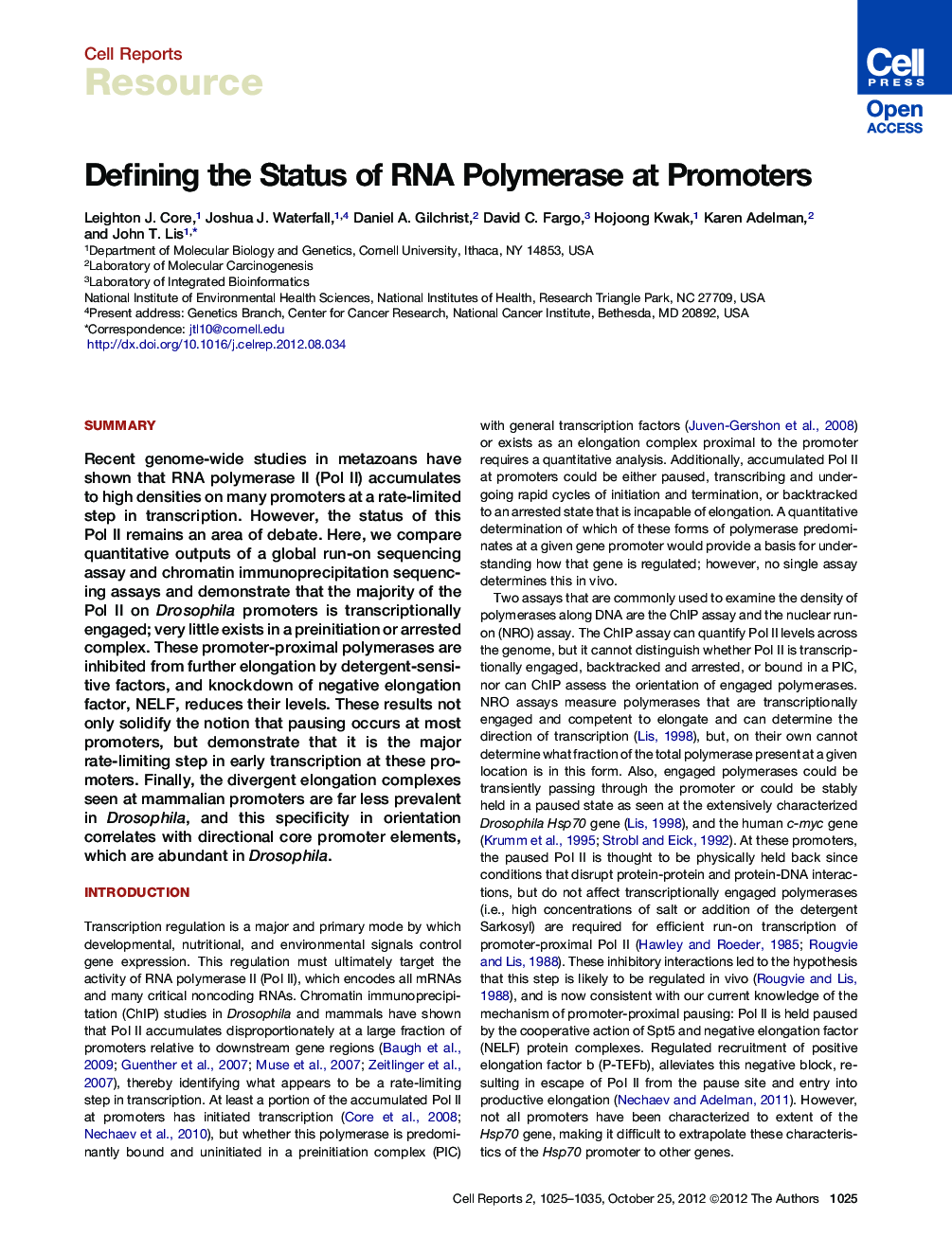| Article ID | Journal | Published Year | Pages | File Type |
|---|---|---|---|---|
| 2040411 | Cell Reports | 2012 | 11 Pages |
SummaryRecent genome-wide studies in metazoans have shown that RNA polymerase II (Pol II) accumulates to high densities on many promoters at a rate-limited step in transcription. However, the status of this Pol II remains an area of debate. Here, we compare quantitative outputs of a global run-on sequencing assay and chromatin immunoprecipitation sequencing assays and demonstrate that the majority of the Pol II on Drosophila promoters is transcriptionally engaged; very little exists in a preinitiation or arrested complex. These promoter-proximal polymerases are inhibited from further elongation by detergent-sensitive factors, and knockdown of negative elongation factor, NELF, reduces their levels. These results not only solidify the notion that pausing occurs at most promoters, but demonstrate that it is the major rate-limiting step in early transcription at these promoters. Finally, the divergent elongation complexes seen at mammalian promoters are far less prevalent in Drosophila, and this specificity in orientation correlates with directional core promoter elements, which are abundant in Drosophila.
Graphical AbstractFigure optionsDownload full-size imageDownload as PowerPoint slideHighlights► Unlike mammals, Drosophila promoters lack an upstream divergent peak of Pol II ► Promoter Pol II is functionally distinct from actively elongating Pol II ► Transcription at Drosophila enhancers can be bidirectional and involves pausing ► Most Pol II detected at promoters is paused, not uninitiated or arrested
